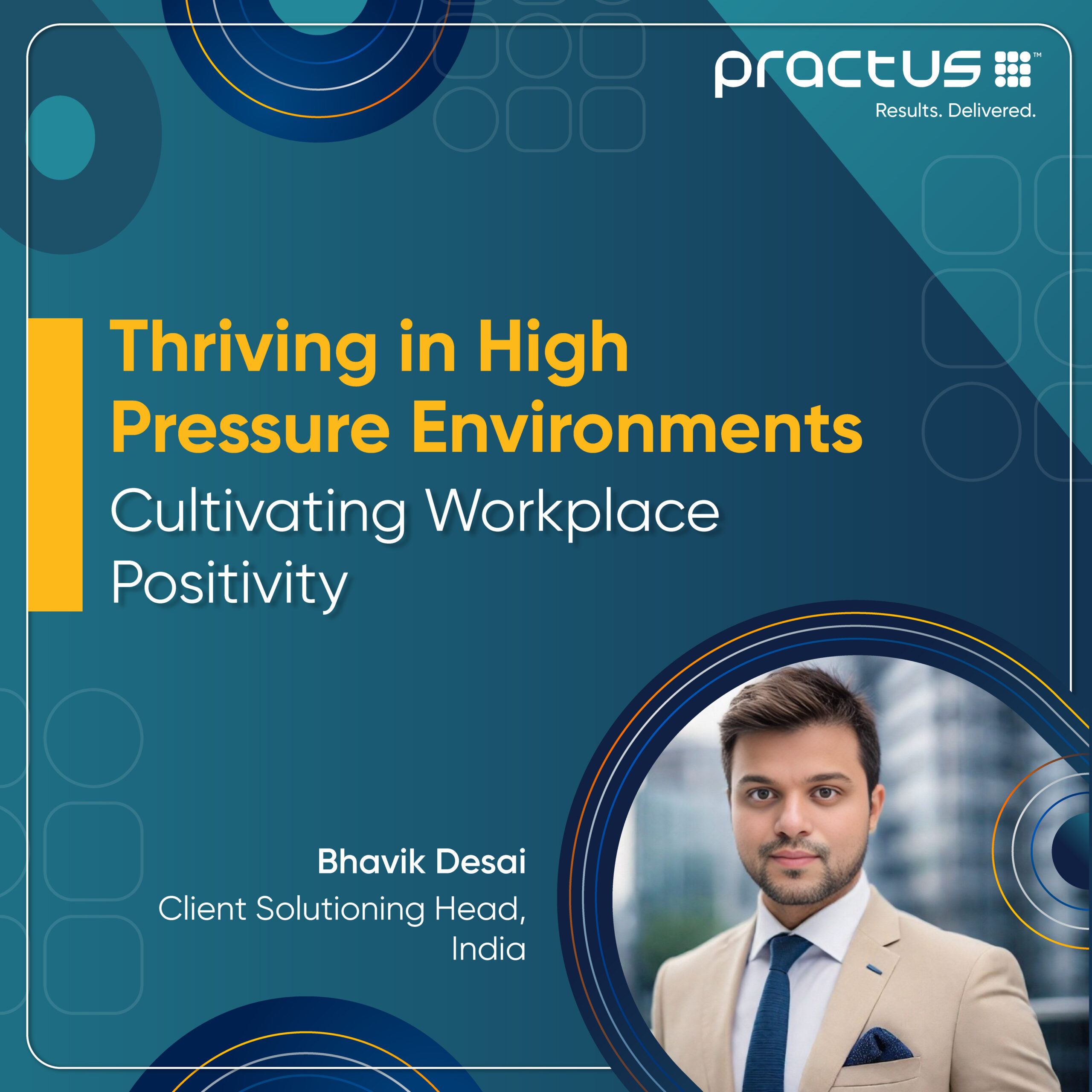
In the financial consultancy industry, each move is scrutinized, every outcome is critical, and daily life revolves around navigating an intense, high-pressure environment. From navigating complex, ever-changing regulatory requirements and driving P&L growth, to retaining talent and planning for contingencies, we are part of a dynamic environment, where everyday challenges are the norm rather than the exception. Here, success hinges not only on strategies and forecasts but on our core asset – our people. Cultivating a positive work culture is more than just a goal; it is a strategic imperative.
Revenue Recognition: The Impact of Data Analytics & AI
Over the years, numerous studies have highlighted the benefits of a positive work culture. Whether it is talent attraction, retention, productivity, or engagement, workplace positivity translates to many tangible advantages across the employee lifecycle. While policies and programs for promoting work-life balance are important, fostering workplace positivity involves authentic concern for the well-being of our teams. This includes:
- Cultivating an environment of empathy and compassion, and enabling support for those facing challenges.
- Treating everyone with respect, trust, and inclusivity.
- Creating an inspiring atmosphere and providing adequate motivation and encouragement.
- Building a mindset where there is space for acknowledging and forgiving errors and learning from them.
- Ensuring meaningful work and recognizing hard work with appropriate praise and rewards.
Companies, such as Google, Salesforce, HubSpot, Microsoft, IBM, and Spotify have often made it to the lists of best workplace culture in many countries. Domestically, the TAT group exemplifies workplace positivity with the best possible outcomes – successful businesses and enduring employee loyalty. However, culture dilution is an ongoing challenge amid organizational growth and changes. When these organizations expanded, merged, or faced critical business challenges, they had to reinvent themselves to accommodate the larger or more diverse employee base with evolving needs and expectations. Yet, some of the key aspects of fostering a positive work culture remain the same. It is about:
Building Connections
One of the most crucial steps in any cultural intervention is an unwavering commitment to engaging with talent. Viewing our teams as not just enablers of the business but as architects of success. Building a matrix of multi-way and multi-level communication and touch-points, and enabling our teams to forge bonds at the workplace and beyond can result in deeply connected teams with shared personal interests and passion for their work.
Turning Pressure into Power
In an industry where stress is as ubiquitous as market fluctuations, why not turn it into a catalyst for excellence? Whether it is through stress-relief programs, counseling and mental health services, or opportunities to contribute or participate in their chosen social causes, it is possible to build happier, healthier, and more resilient teams that are aligned with the organization’s mission, vision, and goals.
Embracing Perpetual Learning
Not just in our industry, but across all sectors, learning is the currency of the future. Whether it is through learning and development initiatives, mentorship programs, knowledge-sharing platforms, or other structured and unstructured initiatives, building an organization-wide continuous learning mindset is imperative for ensuring the adaptability, relevance, engagement, and productivity of our workforce.
Letting Ideas Take Flight
In an industry driven by precision and foresight, innovation cannot be an afterthought. A dedicated innovation hub where cross-functional teams collaborate on disruptive ideas is the kind of initiative that can infuse a strong sense of pride and purpose amongst our teams.
Realizing the Full Potential
Building a positive work culture is also about realizing the full potential of each team member. Over the last few years, performance management processes across many organizations have gone through radical changes in this context. While some have completely opted out of a forced bell curve system and annual reviews, most have started acknowledging and emphasizing the importance of continuous feedback and proper and prompt recognition for achievements, establishing a culture of transparency, accountability, and acknowledgment.
Building and maintaining a positive work culture in the demanding, high-pressure financial consultancy industry requires a multifaceted approach. Prioritizing employee engagement, implementing effective stress management strategies, fostering continuous learning and innovation, and factoring in the diverse needs and expectations of a multi-generational workforce are just some of the key steps toward achieving workplace positivity. As industry leaders, it is our collective responsibility to shape an environment where our teams not only endure pressure but transform it into a catalyst for growth and excellence for themselves, as well as for our organizations.
Analytics as a Service


